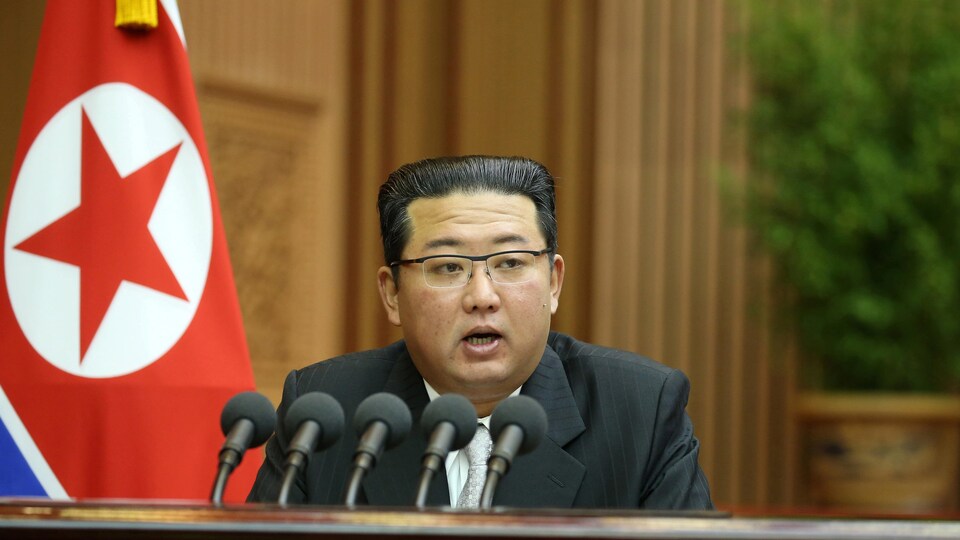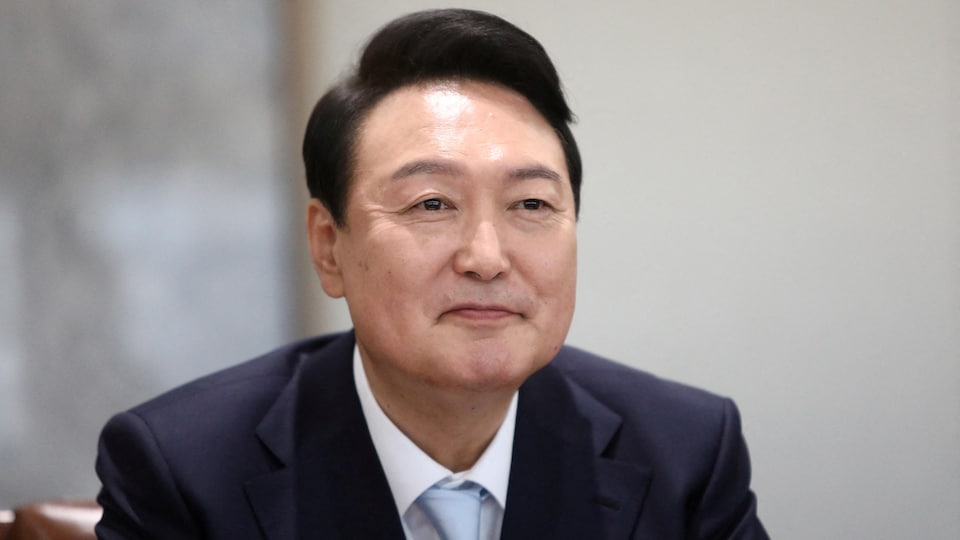The North Korean army has stepped up the distribution of drugs to fight the COVID-19 epidemic, the official KCNA news agency said Tuesday, which reported nearly 1.5 million cases of “fever.”
Leader Kim Jong-un ordered a nationwide lockdown to try to prevent the spread of the virus in the country, whose population has not been vaccinated, and deployed the military to help fight the outbreak, which he criticized.
Hundreds of Korean People’s Army service members in camouflage uniforms were seen gathering in the Pyongyang capital in photos released by the KCNA.
the army immediately deployed its powerful forces to all pharmacies in the city of Pyongyang and began providing medicines as part of the 24 -hour servicesaid KCNA.
A photo of the agency shows soldiers walking in a long line of olive green trucks.
Kim Jong-un on Monday strongly criticized the government and health authorities for their handling of the outbreak, especially the failure to keep pharmacies open at all times.
Since the country announced the first COVID case on Thursday, the leader has taken personal responsibility for fighting the outbreak, which he said caused large disturbances in the country.
Authorities have reported more than 1.48 million cases of fever and 56 deaths since the outbreak of COVID in the country and at least 663,910 people receive medical treatmentaccording to the same source.
Authorities have stepped up media awareness campaigns and pharmaceutical companies have increased drug production, the KCNA said.
A failed health network
North Korea’s health care system was ranked 193rd out of 195 countries in a study by Johns Hopkins University of the United States last year. Hospitals in the country are notoriously under-equipped, with few intensive care units.
According to experts, the country has no treatment for COVID-19 and no capacity to diagnose its population.
Most North Koreans are chronically malnourished and unvaccinated, there are almost no medicines left in the country and the health infrastructure cannot cope with this pandemic.said Lina Yoon, a Korea researcher at Human Rights Watch.
He called on the international community to offer medicines, vaccines and infrastructure to North Korea. So far, Pyongyang has not responded to Seoul’s offer, according to South Korea’s unification ministry.
South Korea’s new president, Yoon Suk-yeol, has taken a tougher stance than his predecessor to his nuclear-armed neighbor. On Monday, he told the National Assembly that he was will not hesitate to provide the necessary assistance to the citizens of North Korea as long as he accepts.
Despite the health crisis, new satellite images indicate that North Korea has resumed construction of a long -delayed nuclear reactor.
Washington and Seoul suspect Pyongyang is preparing a nuclear test, which will be the seventh in its history and the first since 2017, to divert the attention of the North Korean population from the health crisis.
WHO is willing to help
The World Health Organization (WHO) expressed concern Tuesday about the harm Omicron could cause to North Korea’s unvaccinated population and reiterated its offer of help ranging from vaccines to medical devices.
L ‘WHO Extremely concerned about the risk of COVID-19 spreading further across the country, especially since the population has not been vaccinated and many people have medical conditions that put them at risk of developing a serious form of the disease.warned the organization’s boss, Tedros Adhanom Ghebreyesus, at a regular press briefing in Geneva.
So far, Pyongyang authorities have apparently not responded to calls fromUNand theWHO admitted to having no choice but to wait for the green light to help.
Tuesday morning, the Office of the High Commissioner for Human Rights said deeply concerned of the impact of the COVID-19 epidemic on the human rights situation in this reclusive dictatorship.
Doctor Tedros Adhanom Ghebreyesus recalled thatWHO is ready to provide assistance whether in the form of vaccines, medications, but also tests and other equipment that a North Korean health system may lack that could very quickly be overwhelmed.
Source: Radio-Canada

